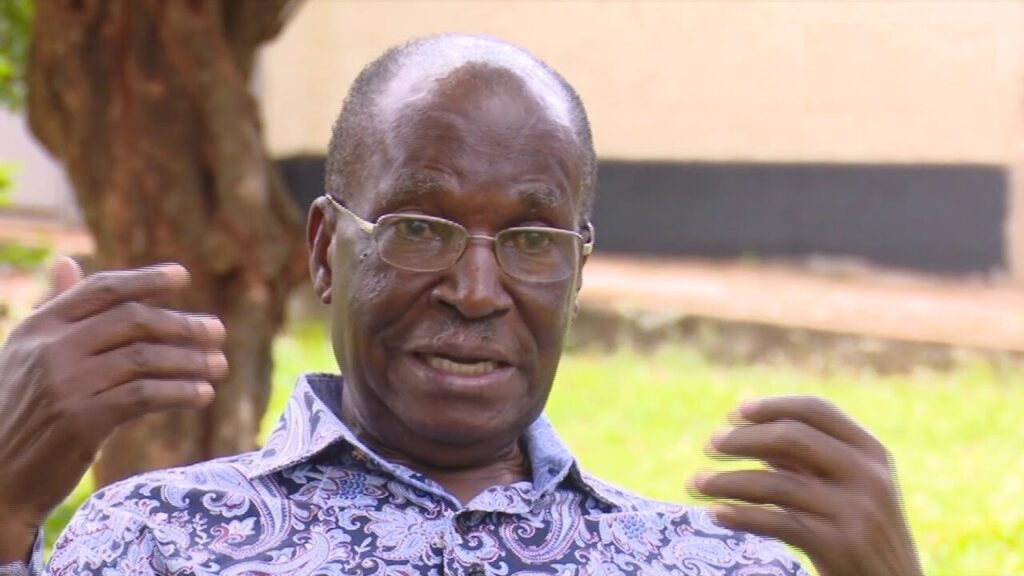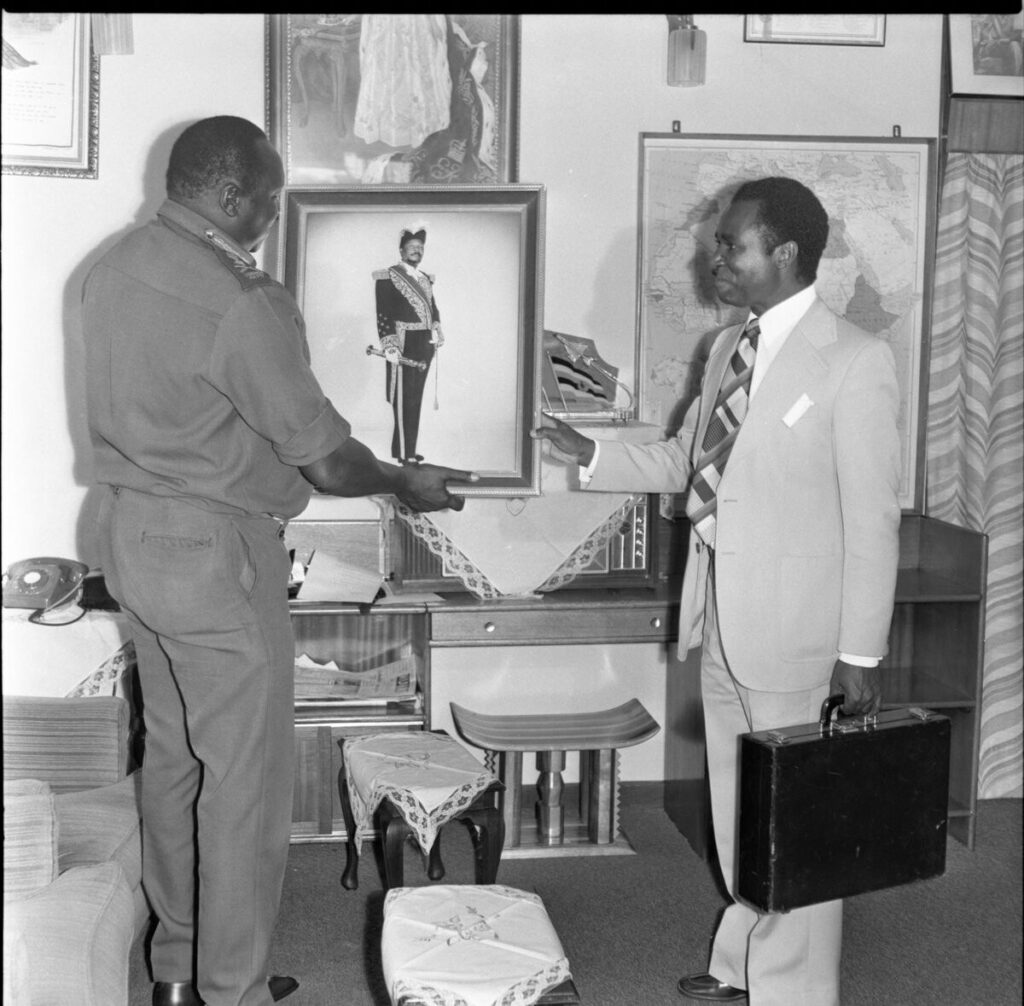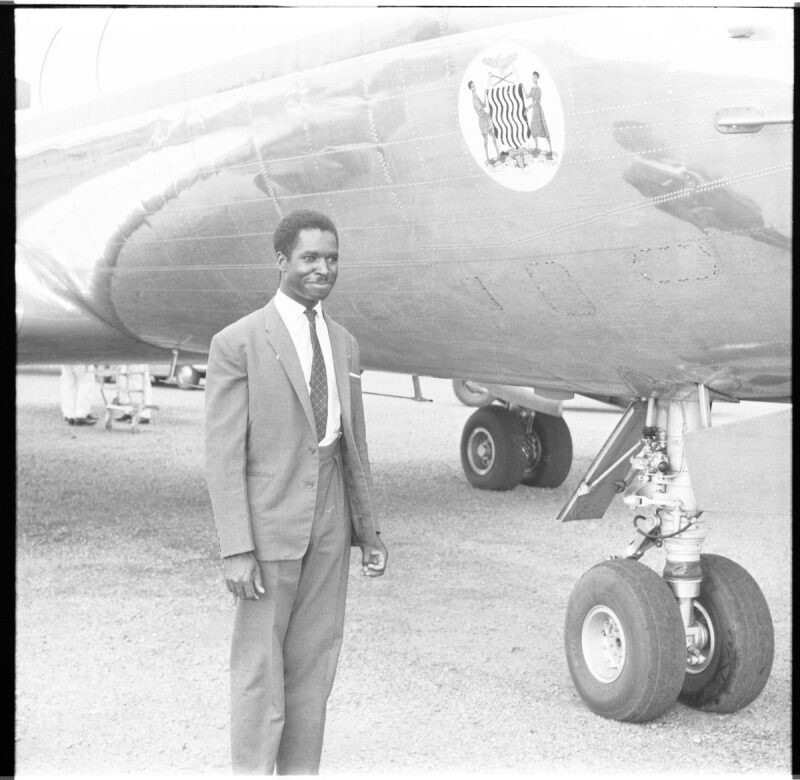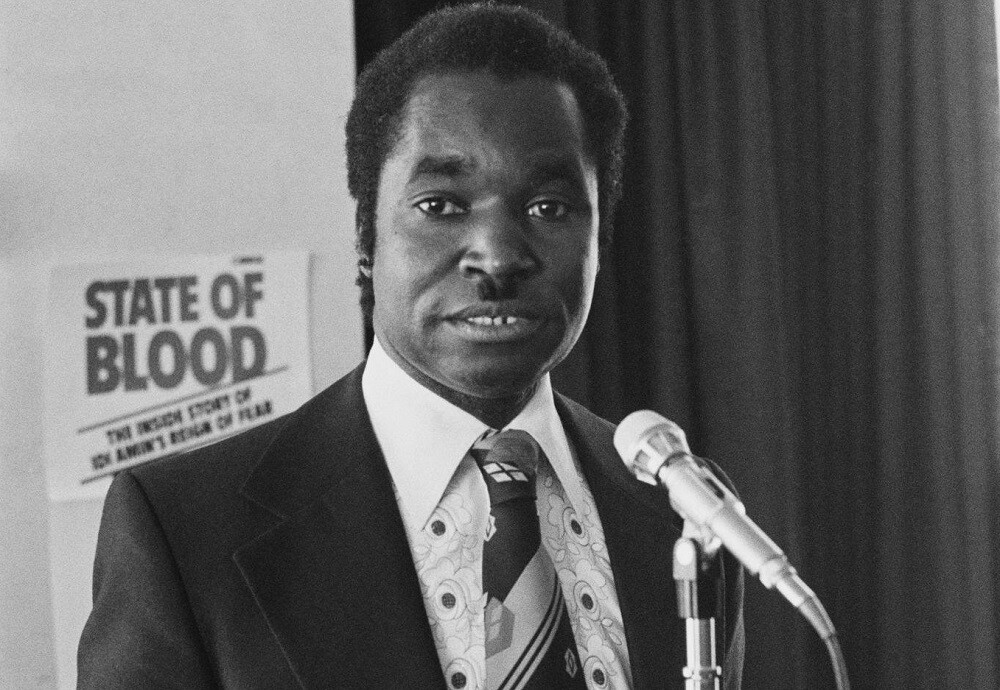Kampala, (UG): On October 19, 2023, the final curtain fell on the life of Henry Kyemba, a veteran Ugandan politician, civil servant, and author. Family members said Kyemba passed on peacefully early morning on Thursday, at the age of 84.
Kyemba’s life story is illuminated by his years of service as the Private Secretary to Presidents Apollo Milton Obote and Idi Amin Dada, a minister in the Amin and Museveni governments, a member of the Constituent Assembly that made the 1995 constitution, and a Member of the Sixth Parliament of Uganda.
He served as one of the members of the Judicial Service Commission, the Chairperson of the Madhvani Foundation Scholarship Committee, and a Rotary District Governor, a testament to his commitment to duty and honour.
The Deputy Speaker of Parliament through his X handle formerly Twitter described Henry Kyemba as a very distinguished statesman and one of the most senior leaders in this country, who served several regimes including; serving as the first Presidential Private Secretary of Milton Obote, Minister for Health under Idi Amin and Minister for Presidency under President Museveni.
Professor Derek Peterson, who has documented and archived part of Uganda’s historical events especially those related to Id Amin’s rule said Kyemba was a fixture in Uganda’s public life: advisor to presidents Obote and Amin; dedicated civil servant; courageous critic of Amin’s brutality; and custodian of memory”
With the passing of Rotarian Henry Kyemba, the curtain has fallen on yet another crop of young educated Ugandans who took up positions in the country’s civil service immediately before or after attained its independence in 1962.
He was in the league of the Late Kirunda Kievejinja, Wanume Kibedi, Agrey Awori, Mayanja Nkanji, Abu Kakyama Mayanja, Adoko Nekyon, Akena Adoko, Mathias Ngobi, David Lumu and many others in that league. He went to Makerere University between 1957 and 1962. Joining the Civil Service

Kyemba served as the first Principle Private Secretary to the first Prime Minister of Independent Uganda the late Dr. Milton Obote whom he had first met at Busoga College Mwiri in the mid-fifties.
In past narrations to URN, Henry Kyemba indicated that taking up that job was one of the biggest challenges he faced after university
. “And it was a big challenge. I had known Milton Obote from Busoga College Mwiri. But here is the young man after Makerere in the Prime Minister’s office just before independence. Serving him as I must to the best of my ability”
Kyemba narrated that he thought that he was to spend only two years as the Private Secretary to the Prime Minister. “Because serving as a private secretary is not the kind of job where you say it is a cup of tea,
” He said the good part of the job related to some of the fringe benefits that come with being close to the head of state. “You travel first class, you stay in the best hotel where the President stays, and very rarely do you pay your bills. You have your per-diems but the host government pays for your bills,” Surviving Assassination Attempts on Obote
Kyemba survived a bullet that hit President Apollo Milton Obote on 19th December 1969. There was an assassination attempt against Obote as he was leaving the UPC annual delegates’ conference at Lugogo Indoor Stadium in Kampala. The bullet struck Obote in the face, breaking two of his teeth and passing through his cheek. Kyemba was with Obote in the same car.
Kyemba indicated that missing the bullet was part of the occupational hazards of being so close to the president. There were two assassination attempts on Obote and on each of those two occasions, Henry Kyemba was with the President.
“When we were coming from Port Bell the Prisons’ headquarters in June 1970, we were leading the convoy. I was in the car and he was with his cousin in the back. They had laid an ambush to shoot us. By a miracle, we passed and they missed us” he narrated to URN in 2017. The assassins instead shot at the car in which Obote’s Vice president at the time, John Babiha was travelling.
So according to Kyemba “These are some of the things you must expect when you are in such positions. Much as you enjoy some of the benefits. Some of the colleagues at the office would tell me that Kyemba you are complaining. But there are also the fringe benefits,”
Obote was entitled to reshuffle or drop Kyemba but he did not. Kyemba continued to serve in the same capacity until 25 January 1972 when Idi Amin, commander of the Ugandan army, seized power while Obote. True to his job, Henry Kyemba was part of the 30-person Ugandan delegation attending the Commonwealth Heads of Government meeting (CHOGM).
It was Kyemba who broke the bad news to Dr. Obote that he had been overthrown by the army led by Idi Amin.
Kyemba on several occasions indicated that his appointment as a minister by President Amin was very interesting. At the time, Kyemba was briefly in exile but President Amin had allowed the civil servants who had travelled with President Obote to Singapore to return.
“In fact, I came back on the same flight from Tanzania with the late William Kalema who was Minister of Commerce. I came and I was led to the command post to report to the new head of state. When we were introduced to the head of state, he told me that we see you on Monday. I said which office? He said your office. But I said I was the private secretary to Obote. He said you are now my private secretary,” Kyemba narrated.
“And I was happy that I was leaving the President’s office for leave which I had not had for a couple of years. I took that opportunity to organize my farm in Njeru in 1971,”
He hoped that that was the end of what he had seen of the Amin’s government. Amin appointed him Permanent Secretary at the Ministry of Culture and Community Development.
He was also responsible for the community training Centre at Nsamizi for training community development officers.
In September 1972, Kyemba was travelling to Entebbe to wait for his minister, Ambassador, Yekosophat Engu. He heard on the radio that five of the ministers including Yekosophat Engu had been dropped from cabinet. Engu was supposed to officiate at a function at Nsamizi. He telephoned the State House to inquire about the new minister but he was told the president was not available.
“Then a policeman came in. and said they want you on the telephone. Being escorted by a policeman from the rostrum by a policeman was not good news. And certainly, somebody wondered whether that was the last they were seeing of me. I didn’t know whether the firing of the minister and me the permanent secretary were connected. I went and who was on the phone? Idi Amin. He said Kyemba, what is it? I said I’m here at Nsamizi we are having a graduation ceremony but the minister who was supposed to preside has been fired. And Idi Amin said oh you are the minister”
That is how Kyemba became one of the 18 ministers under President Idi Amin Dada. He also served as minister of health under Amin.

Fallout with Amin
For many years, Kyemba was faced with questions about why he kept serving under Idi Amin even with the alleged atrocities and killings. Some of his relatives like relatives like Shaban Kirunda Nkutu. He at one moment said he did not know whether he should take credit for going to exile or be punished for having stayed.
Kyemba indicated that he had the opportunity to go into exile in 1972 when he traveled to Lagos. At the time, Benedicto Kiwanuka, the then Chief Justice had just been murdered.
“I thought if I went, my own brother Nabeta who was CEO of National Insurance Corporation, my other brother who was a magistrate, and my mother above all. I thought it was wrong for me to leave them. So I said I better go and come back”

He stayed on until February 1977 when the Archbishop, Janan Luwum, and two cabinet ministers were murdered. “My oil mother told me that I don’t want to see you because they are going to kill you. I thought hard about the murdering of an Archbishop”
Being the chairman of African Health Ministers, Kyemba took advantage of the then-upcoming Health Conference at WHO in Geneva where he was elected Vice President of the World Health Assembly in 1977. “While busy working for my country, Idi Amin was arresting ministers and my five-year child in Jinja and then telephoning me in Geneva,” he said.
After Geneva, Kyemba took the first flight to London. “The fact was that you could not resign from the Amin government and thin that you could walk on the streets. Many of us were praying to be dismissed so that they go underground” observed Kyemba who stayed in exile until 1986.
“And I can tell you that the most humiliating thing you can ever go through is to go and live in exile. Because you are seen as a pest, a parasite on the hardworking people where you got refuge” said Kyemba.

Authoring State of Blood
While in exile in a flat in Oxford, Kyemba wrote a book titled “State of Blood” the inside story of Idi Amin. He said the stories he narrated in that story will always be part of Uganda’s history. The book was written within one month in order to beat the deadline of the UN General Assembly that was to be held in September 1977. It was to be presented as a true story of someone who had been close to the government.
“And maybe one can say I was an accomplice. And I was ready to go to ICC or anything like that. To record what I felt the world ought to know as they were dealing with the regime of Idi Amin,” Kyemba.
Do you have a story or an opinion to share? Email us on: dailyexpressug@gmail.com Or follow the Daily Express on X Platform or WhatsApp for the latest updates.

